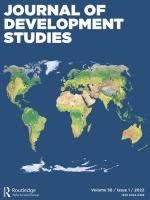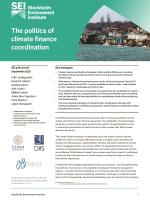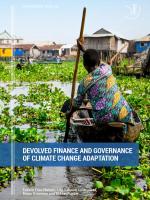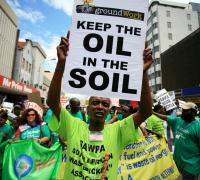Climate finance coordination from the global to the local
Climate finance is a key feature in the implementation of the Paris Agreement on climate change, and the world’s wealthy countries have committed to mobilize USD 100 billion a year to support climate action in developing countries.
However, the institutional architecture of climate finance is still developing, including the norms that guide how this finance should be governed and managed. While there has been much focus on the global politics of climate finance and associated North/South dynamics, less is known about the ways in which emerging international norms around the governance of climate finance are diffused and contested within developing countries.
In this article Mikkel Funder (DIIS) and Kendra Dupuy (Fridtjof Nansen Institute) trace the diverging preferences and interactions among donors and domestic actors as they shape climate finance coordination in Zambia with support from the global Climate Investment Funds and the World Bank.
Their findings show (i) that emerging international norms on climate finance coordination may be “localized” and reshaped as they are enacted in developing countries; (ii) that preferences may differ significantly between and among donors and domestic actors in this regard, and (iii) that past relationships from development cooperation may be carried forward but also challenged in this process.
The article is Open Access and can be downloaded free of charge here
The research is part of the collaborative “Share or Spare” project led by Lund University and funded by the Swedish Research Council. More information on the project can be found here.
DIIS Experts








